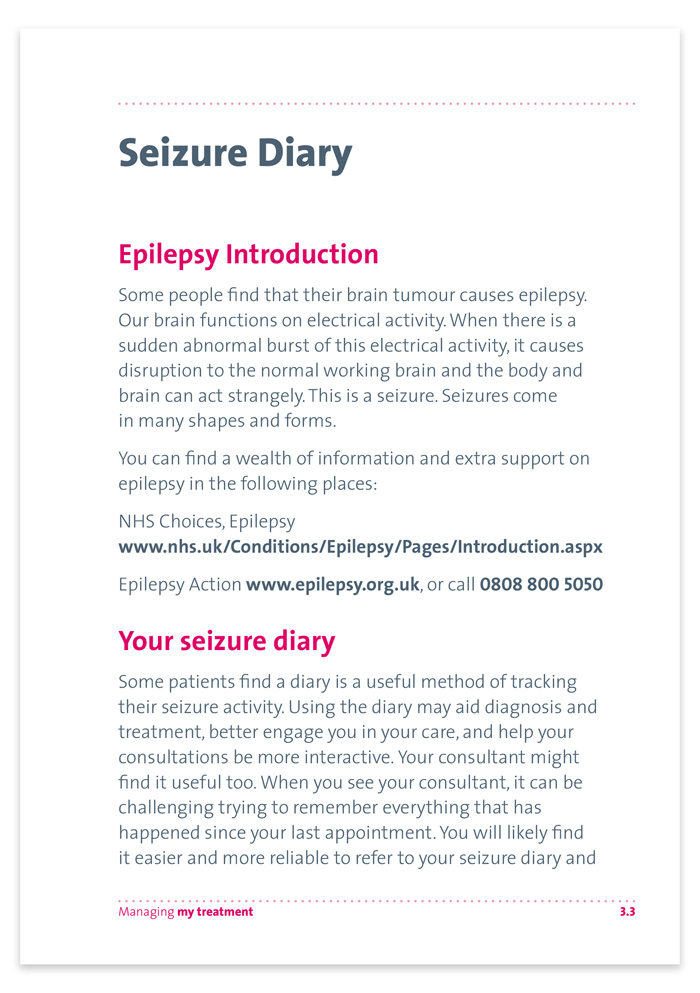Epilepsy
Some people find that their brain tumour causes epilepsy. Our brain functions on electrical activity. When there is a sudden abnormal burst of this electrical activity, it causes disruption to the normal working brain and the body and brain can act strangely. This is a seizure. Seizures come in many shapes and forms. You can find a wealth of information and extra support on epilepsy in the following places:
Your seizure diary
Some patients find a diary is a useful method of tracking their seizure activity. Using the diary may aid diagnosis and treatment, better engage you in your care, and help your consultations be more interactive. Your consultant might find it useful too. When you see your consultant, it can be challenging trying to remember everything that has happened since your last appointment. You will likely find it easier and more reliable to refer to your seizure diary and the general overview, than trying to remember details of your past seizures. Also, you and your consultant may spot themes, which can help with your diagnosis and treatment. Certain triggers, for example, may keep cropping up, or perhaps your seizures tend to happen at a similar time of day.
Click here to find out how you can help us to improve quality of life and ensure better outcomes for brain tumour patients.
How to use your seizure diary
Time of seizure
You may find it helpful to log what time you have seizures, in case you notice a pattern. If there is a pattern, share it with your consultant.
Length of seizure
You or someone who has witnessed your seizure may know what time your seizure ended. With this, you can work out how long your seizure lasted. This can be very helpful information to pass on to your specialist.
Description
As well as logging the date and times of your seizures, you can write a description of what happens and what you feel.
Triggers
There is space to jot down anything you feel may have triggered your seizure. Examples of triggers include forgetting to take medication or changes in medication, stress, not eating regularly, flickering lights.
Notes

In the notes section, you could jot down anything else you think is important, such as how you were feeling before the seizure – did you have any warning? How did you feel after and how long did it take you to recover? If anyone was with you, they could tell you what it looked like. You can also use this section to record if you’re experiencing any side effects from your anti epilepsy medication.
Sources
Epilepsy Action, Keeping a Seizure Diary, available at:
www.epilepsy.org.uk/info/diagnosis/seizures-diary, 2014
NHS, Epilepsy – Causes, available at:
www.nhs.uk/Conditions/Epilepsy/Pages/Causes.aspx, 2014
Patient.co.uk, Living with Epilepsy, available at:









